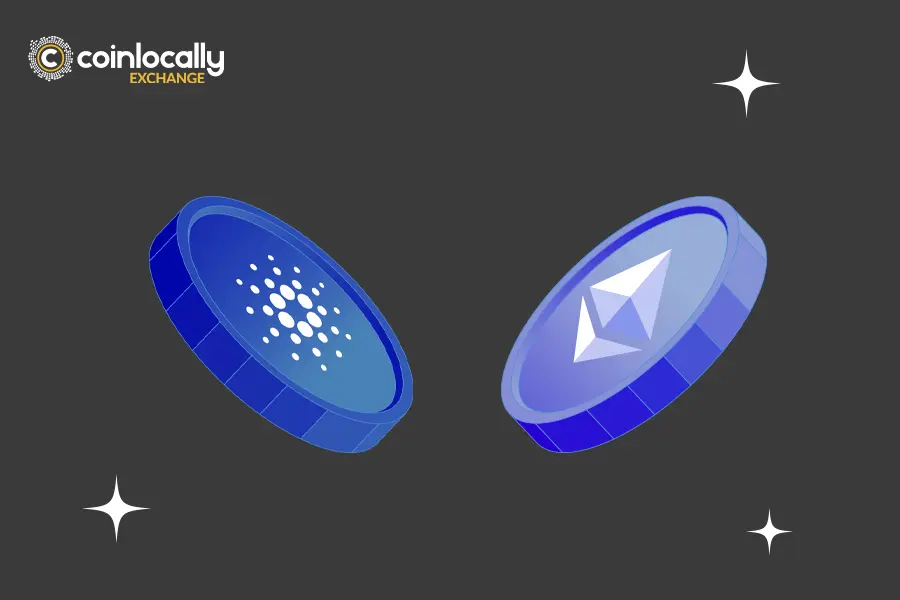If you are a trader, you’re probably familiar with multipliers, but have you explored the benefits of a crypto multiplier? A crypto multiplier is a powerful tool that lets you control larger trading positions while committing only a small initial investment. In this blog post, we’ll look in-depth at how crypto multipliers work within the context of crypto contracts. We’ll discuss their importance, explain their mechanics, and provide practical tips on selecting the best multipliers for your trading strategy.
Table of Contents
Crypto Contracts: The Foundation for Using a Crypto Multiplier
Before discussing multipliers in crypto contracts, we must familiarize ourselves with Crypto Contracts. Generally speaking, crypto contracts are digital agreements with the contract terms encoded directly. Intermediaries will not be required and automatically enforced on a blockchain network, meaning no intermediaries will exist.
By operating autonomously, these contracts ensure transparency, security, and trust between the parties involved. Once the predefined conditions are met, the contract self-executes.
A good example of such contract applications is decentralized finance (DeFi), which facilitates various financial services, including lending, insurance, and supply chain management, without the need for traditional financial institutions.

What is a Crypto Multiplier in Contracts?
Now, let’s see what multipliers are all about. Crypto multipliers are a tool that allows traders to amplify their exposure to a particular asset without having to invest the full amount upfront.
In other words, a multiplier increases the potential returns on an investment by leveraging a smaller initial deposit.
For instance, a 10x multiplier means a $100 investment is treated as $1000. This can significantly boost profits when the market moves in the trader’s favor.
However, you must be careful, as leverage is a double-edged sword. While it can magnify gains, it can also magnify losses. The potential losses will be amplified if the market moves against the trader’s position.
Types of Contracts That Use a Crypto Multiplier
Traders commonly use multipliers in various cryptocurrency contracts, including options, futures, and index futures. We will detail each of these below.
Option Contracts and the Crypto Multiplier Factor
Option contracts give the holder the right, but not the obligation, to buy or sell an underlying asset at a specific price (strike price) before a certain date (expiration date). A standard option multiplier is 100, meaning that one contract controls 100 shares of the underlying asset.
Futures Contracts and Their Crypto Multiplier Use
These contracts obligate the buyer and seller to exchange an asset at a predetermined price at a future date. Future contract multipliers determine the dollar value of each point movement in the underlying asset’s price.
Index Futures Contracts and How the Crypto Multiplier Applies
Index Futures contracts are based on the performance of stock market indexes like the S&P 500, Dow Jones, and Nasdaq. The multiplier for such contracts varies across different markets. For example, in the US, the multiplier for e-mini S&P 500 contracts is 50, while it is 20 for e-mini Nasdaq contracts.
Crypto Multiplier: Pros and Cons You Should Know
In this part, we will examine the benefits and drawbacks of multipliers in crypto contracts. Let’s start with the advantages.
- Amplified Trading Power: By leveraging a smaller initial investment, traders can control larger positions, potentially resulting in significant gains.
- Increased Flexibility: Multipliers allow traders to open multiple positions simultaneously.
- Enhanced Returns: When the market moves in the desired direction, multipliers will likely magnify profits.
- Strategic Opportunities: Multipliers enable traders to mitigate several risks involved with derivatives.
However, don’t forget that several risks involve multipliers in crypto contracts. These are:
- Amplified Losses: Just as gains are magnified, so are losses. Even small adverse price movements can lead to substantial losses when you use high multipliers.
- Margin Calls: If your position moves against you, you may receive a margin call that requires you to deposit additional funds to maintain your position. Failure to meet this requirement can result in liquidation.
- Market Volatility: The cryptocurrency market is highly volatile, and using multipliers in such conditions is regarded as extremely risky.
- Liquidation Risk: If your losses exceed a certain threshold, the platform may automatically liquidate your position to limit further losses. This can lead to the complete loss of your initial investment.
How to Pick the Right Crypto Multiplier Based on Your Strategy
Having explored the concept of multipliers in crypto contracts, it is time to touch upon the process of selecting the right multipliers. In this regard, you need to pay attention to several significant factors.
- Risk Tolerance: If you are new to trading or risk-averse, opt for lower multipliers (2x or 3x) to minimize potential losses while you gain experience.
- Market Conditions: During periods of high volatility, lower multipliers can help manage risk and protect your capital. On the other hand, in calmer market conditions, higher multipliers may be suitable to amplify potential profits.
- Investment Timeframe: Short-term traders use higher multipliers to capitalize on rapid price fluctuations. However, long-term investors may prefer lower multipliers to build wealth over time.
- Experience Level: We suggest starting with lower multipliers until you gain confidence and develop effective risk management strategies. In contrast, more experienced traders may be comfortable with higher multipliers due to their understanding of market dynamics.
Are There Alternatives to Multipliers?
If you are wondering whether there are any alternatives to multipliers, the answer is yes. Consider the following options if you want to find more strategies beyond multipliers. We also provide the pros and cons of each alternative.
Staking
- How it works: Staking involves locking up a portion of your cryptocurrency to support the network’s operations, such as validating transactions. In return, you earn rewards.
- Pros: Earn rewards over time without active trading; Less volatile compared to leveraged trading
- Cons: Funds may be inaccessible for a set period; The value of the staked asset can still fluctuate
Yield Farming
- How it works: In yield farming, you lend or provide liquidity to DeFi protocols to earn interest or rewards.
- Pros: Potentially high yields compared to traditional savings; Often allows for flexible withdrawals
- Cons: Requires understanding of DeFi protocols and risks; Vulnerable to smart contract risks
Crypto Multiplier: Swap Services
- How it works: Swap services enable direct cryptocurrency exchanges without intermediaries, which is often facilitated by decentralized exchanges (DEXs).
- Pros: Peer-to-peer trading for enhanced security and privacy; lower transaction fees
- Cons: Price fluctuations impact the final exchange rate; Not all cryptocurrencies may be available for swapping
Index Funds
- How it works: Similar to traditional stock index funds, crypto index funds offer diversified exposure to a basket of cryptocurrencies.
- Pros: Reduces risk by spreading investments across multiple assets; Requires minimal active management
- Cons: Returns are tied to the overall market performance
Final Words: When to Use a Crypto Multiplier and When to Avoid It
It is probably clear by now that multipliers are a double-edged sword. On the one hand, they offer the opportunity to maximize returns with minimal initial investment, but on the other hand, they result in amplified losses.
As we hire successfully, you must deeply understand how to take advantage of multipliers in successful management. You also need a well-defined trading strategy and the ability to navigate volatile market conditions. The best advice is to judiciously use multipliers in crypto contracts and as part of a comprehensive trading plan.




